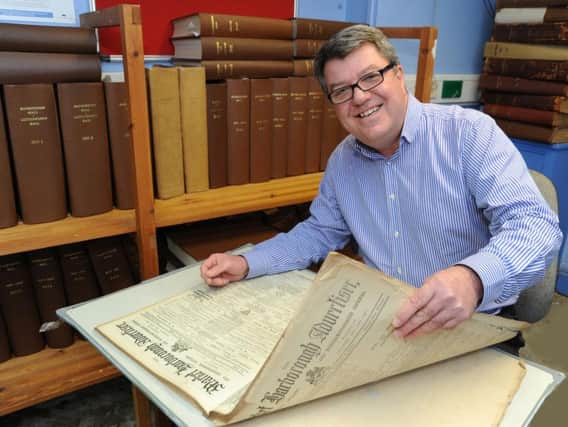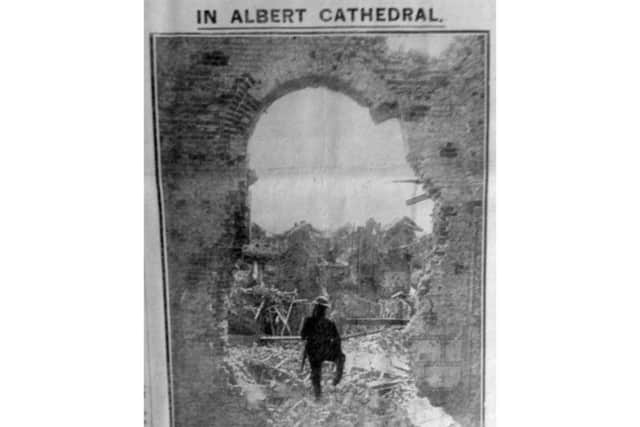John's real-time WW1 blog: Fortune-seeker's adventure from a tiny Harborough village to America and Canada before a hero's death in France


What a story there is to tell about the short life of Lance Corporal Jack Page who was born and raised in the tiny village of Welford.
There are not too many details in the report in the October 1, 1918, edition of the Market Harborough Advertiser but we do learn that Page left his parents and friends before the war to emigrate to the United States – quite an event in itself.
Advertisement
Hide AdAdvertisement
Hide AdBut he wasn’t content to just enjoy the good life and he ‘left a good position’ to join up with the Canadian Army and was shipped to France early in 1918.


He found himself in the thick of one of the last big battles of the war when the Canadians seized control of the Drocourt-Quéant line, the crucial western edge of the German defences called the Hindenburg Line.
The Germans suffered massive losses but it was tough for the Canadians too: 5,600 of their soldiers were killed in the offensive – and Page was among them.
A memorial service was held in Welford’s parish church with nearly all the village attending to mark the passing of one of their sons.
Advertisement
Hide AdAdvertisement
Hide AdA battalion chaplain, in a letter to the family, says: “Your son was killed in action near [redacted] in the big advance on September 2nd when the battalion met with severe opposition from a strongly held machine gun post.”
The chaplain adds: “A competent military authority has said that the taking of this strong point on that day by the Canadians is the biggest military feat of the war and perhaps of history. In all your sorrow it will be a satisfaction to remember that your son gave his life and thereby made the supreme sacrifice while discharging his duty to the full to King and Country and to humanity in their great need.”
Page is not the only death reported in this week’s Advertiser. Sergeant W Whinney of The Chestnuts, Little Bowden, has been killed in action by a bomb.
Pioneer Sergeant F Gamble says in a letter to the family: “It was a great shock to us all as four of his chums were killed at the same time and several wounded. We had a very nice service over his grave and erected a nice cross.”
Advertisement
Hide AdAdvertisement
Hide AdWhinney, who before the war worked at the solicitors firm of Burgess and Watson, was just 23.
There is also news of the death of Lieutenant G Plant, eldest son of the Theddingworth vicar. He was killed in action ‘gallantly leading his men in an attack in a village somewhere in France’.
Plant was well known in the locality and ‘his genial manner and lovable nature endeared him to all who knew him’ says the report.
The story continues: “He joined the Army at his earliest opportunity and was given a quick promotion. He was always anxious to get to France and do his bit there but his commanding officer found useful work for him to do in England.
Advertisement
Hide AdAdvertisement
Hide Ad“Six months ago, at his own request, he was sent to France and although but 20 years of age, was given a responsible charge.”
And finally, there is news from Private Bob French of Market Harborough who is an engineer working on aeroplanes.
He has written home to say the aircraft he is just starting work on ‘happens to be the Market Harborough Aeroplane’ with those words emblazoned across its fuselage.
The machine has been named after the town following a successful War Weapons Week earlier in the year.
Advertisement
Hide AdAdvertisement
Hide Ad- This column is published every Monday by John Dilley on the Newspapers and the Great War website and will continue until the 100th anniversary of the final armistice in November 2018.
- My fellow researcher and De Montfort University lecturer David Penman is conducting a similar real-time project with the Ashbourne Telegraph. Check out his Great War Reports.
- Check out this week’s Harborough Mail for current news from the Market Harborough area.